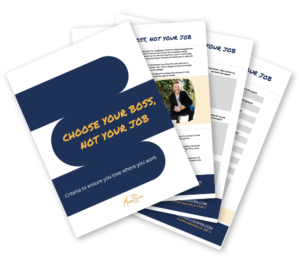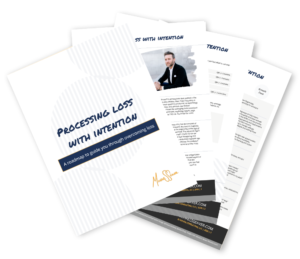“Aging is not “lost youth” but a new stage of opportunity and strength.” – Betty Friedan
I have been very blessed to work with tremendous mentors over the last decade. Each has been over the age of 50 and each has shared a nugget of wisdom, opened my eyes to something new, and pushed me to become a better version of myself. The greatest part about my relationship with these individuals is that they didn’t want anything in return. I’ve offered dinners, tickets to theatrical performances, even skydiving (if you knew the person, you’d understand). Not one of them would take anything in return from me, they all simply asked me to pay it forward.
In an attempt to pay it forward, I’ll share with you the lessons that I learned from them, as they relate to job searching. Below are ten best practices that will help individuals over the age of 50 land a career full of opportunity and strength.
1. A Targeted Resume – It is very important for older workers to focus on the last 15 – 20 years of their experience. Anything that happened prior to 1990 is probably not going to be relevant today. Ensuring that you not only share your responsibilities, but also your accomplishments. Recruiters and hiring managers love to see specific keywords, scope of your duties, and accomplishments. See my post about resumes here.
2. Complete LinkedIn Profile – A continuation of item number one, a robust profile (100% complete) allows you to show up in more searches, getting you recognized by more headhunters and recruiters. Also, stay active in posting to groups. Posting useful tips or insightful comments will help build your credibility, and viability as a strong candidate.
3. Build Relationships – Some like to call it networking, some prefer building relationships. I just read an article about a book, More Than a Paycheck, which showed almost 60% of jobs were filled by employee referrals. Because you may not be able to afford a full-time recruiter to work for you, having a reliable network to lean on will pay dividends. Set a goal of attending two networking events each week. You should also have goals for the number of people you meet while there and have a specific follow up plan thereafter. Remember, plan the work, work the plan.
4. Volunteer Service – I can’t tell you how many times I’ve heard stories about people registering as a volunteer, going above and beyond in their service, and being asked to interview for a compensable position. Once a hiring manager sees what you can do, it pushes you to the top of their list. Give your time to organizations or causes that you feel strongly about. Your desire to help further the organization’s mission will be blatantly obvious, and you’ll become a magnet attracting opportunity to you.
5. Take Advantage of Free Resources – The Workforce Investment Act of 1998 helped to establish programs across the country to provide career support services to local communities. As an example, in Phoenix, we have the Phoenix Workforce Connection and Maricopa Workforce Connections. These organizations provide career advice, help writing resumes, plan job fairs, and have job boards. I also encourage you to set up Google Alerts for industries or companies that you are interested in. Simplyhired.com and indeed.com will allow you to set up alert emails about specific jobs. Find out what complimentary resources your community has to offer and get involved.
6. Practice Interviewing – People who look great on paper also need to be great when meeting face-to-face. Do not memorize your answers to expected behavioral questions. You must understand the company’s needs and tailor your answers to how you can help the company. All organizations hire people because they think that person can save them money, increase sales, or help change the culture. Work with a friend or career coach to help refine your responses and have her show you how to interject statements that make you stand head and shoulders above the rest.
7. Focus on Growth Industries – It may be tempting to look at the companies that you’ve worked for in the past, but some of the industries that made America great are slowly deteriorating. Up and coming industries that are bound to have numerous job openings in the future: Bio-Life Sciences, IT/Software, Clean Technology, and Higher Education. Consider setting your Google, Simplyhired and Indeed alerts around these clusters.
8. Market Yourself Enthusiastically – When you are out networking, have a great 30-second commercial where you can quickly say who you are, what you are looking for, and list three major accomplishments. If you “wow” the listener with your enthusiasm and successes, he will be more willing to have further conversation, or refer you into a meaningful career. Also try to avoid talking about old topics. As mentioned above, your resume should be limited to the last 15 – 20 years. Limit your conversation to successes you’ve had recently. A younger recruiter may find an accomplishment from the mid 90’s to be irrelevant to the open position.
9. Take Risks – Step outside your comfort zone by taking a part-time job in an area you’ve never worked before. Consider an alternative work schedule or working from home. Or maybe it is time you follow your dream of becoming a small business owner. As an entrepreneur, your expertise could be just what someone else needs to make her business profitable.
10. Stay Positive – Last, but certainly not least, stay in a positive frame of mind. I recently watched a movie and the quote “Thoughts become things.” stood out. Another quote is “Like attracts like.” Whatever you do, do not let fear or worry overcome you. If you feel it coming, go for a walk. Come back, in a positive frame of mind, and proactively practice the strategies above.
Call aging what you want, but I see the cup as half full. Think of all the people out there who are hungry to learn from others who have already encountered the challenges, learned the lessons, and mastered their craft. That is truly a position of opportunity and strength.






Connect with me